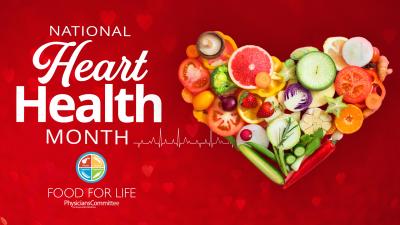Doctors Group Tells Dietary Guidelines Advisory Committee To Ditch Dairy

WASHINGTON—The Physicians Committee for Responsible Medicine—a nonprofit with 12,000 doctor members—testified before the 2020 Dietary Guidelines Advisory Committee on July 11. The group advised that to help keep all Americans healthy, milk consumption should not be recommended in the 2020-2025 Dietary Guidelines for Americans. Susan Levin, MS, RD, CSSD, director of nutrition education for the Physicians Committee and a dietitian for the Barnard Medical Center gave the following testimony:
"My name is Susan Levin. I am a registered dietitian at the nonprofit Physicians Committee for Responsible Medicine and at the nonprofit primary care clinic Barnard Medical Center.
"I am here today to ask the Committee and ultimately the USDA to follow the path of evidence-based guidelines that have been improved upon but not perfected by recent iterations of the Committee’s report. More diligence for facts and scrutiny against the pressures of industry is needed.
"The most outdated recommendation by the Dietary Guidelines is its commercially oriented push for Americans to consume dairy. What may have started as an attempt to stabilize dairy prices has become a serious health problem for many and has justifiably been criticized as a racist practice, for two reasons: First, dairy products are not well digested, if digested at all, by most people who are not white, and further, as the leading source of saturated fat in the diet, dairy products contribute to chronic diseases, including heart disease and prostate cancer, that disproportionately harm or kill people of color.
"In later childhood or early adulthood, the majority of black, Asian, and Native American people lose the lactase enzymes that digest the lactose sugar in milk and other dairy products. Commonly referred to as 'lactose intolerance,' this is not a disease but is rather the normal human condition. Due to the prevalence of lactose intolerance and the symptoms it causes, milk consumption should not be recommended. Americans are well past accepting Northern European-centric dietary recommendations that do not work well for most people. The Dietary Guidelines need to reflect and respect that change.
"The American Medical Association’s official policy is that the USDA should 'include culturally effective guidelines' and 'recognize that lactose intolerance is a common and normal condition among many Americans,' and that the Dietary Guidelines for Americans should clearly indicate that dairy products are optional.
"As a dietitian who has repeatedly corrected patients’ misconceptions about the necessity of milk in the diet, I ask you to make that information available to all as soon as possible. This should not be suppressed information that protects industry while harming people. You have stomach cramps, pain, bloating? Stop eating dairy. You have arthritis? Stop eating dairy. You want to lose weight? Stop eating dairy. You have or are at risk for heart disease and need to avoid saturated fat? Stop eating dairy, the number one source of saturated fat in the American diet. You are at risk for prostate, ovarian, and breast cancer? Stop eating dairy.
"Let us look to our neighbors to the North. Canada’s decision to remove milk from a prominent position in the Canadian food guide is a testament to that nation’s ability to support and respect science and its multicultural population. America should be no less aware and no less accountable to all of its people."
Media Contact
Michael Keevican
202-527-7367
mkeevican[at]pcrm.org
Founded in 1985, the Physicians Committee for Responsible Medicine is a nonprofit organization that promotes preventive medicine, conducts clinical research, and encourages higher standards for ethics and effectiveness in education and research.








